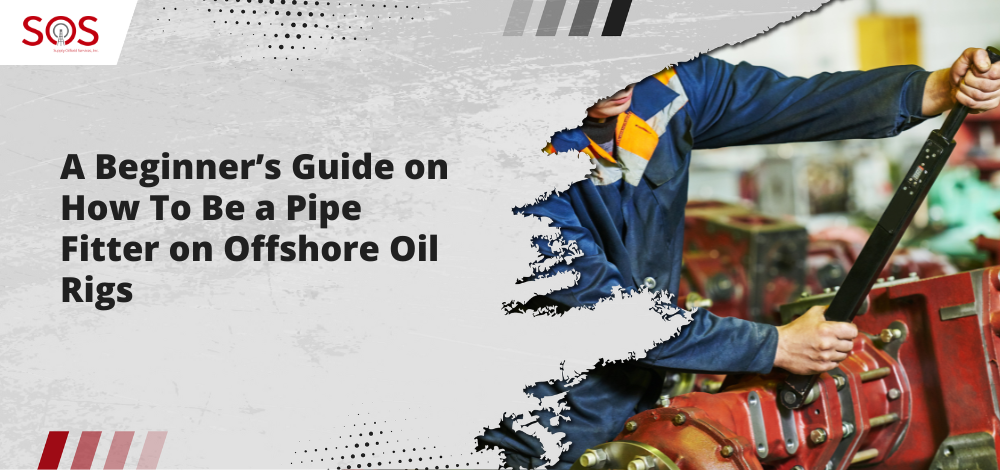Introduction
The world of refineries or oil rigs is vast, offering multiple work opportunities for professionals with different specializations. Among the roles supported by this industry are pipe fitters. They are skilled professionals who perform risky but necessary repair, installation, and maintenance of pipelines, ensuring the smooth flow of chemicals and gases essential to oil and gas extraction processes.
While it might not be everyone’s dream career, offshore pipe fitter jobs abroad are popular because of the many benefits that come with them. Some of the most appealing advantages are competitive compensation packages and job stability.
To fill vacant positions, refineries look for pipe fitters on oil rigs in the Philippines. They employ workers who possess specialized skills like welding, blueprint reading, and troubleshooting. Because these professionals are valuable assets, they often get competitive salaries and receive additional benefits, such as healthcare and life plans, among other bonuses.
The global demand for pipe fitters is steadily increasing. They are crucial in maintaining and expanding the infrastructure that supports the extraction and transportation of oil and gas. Because of this, companies are constantly hiring pipe fitters who can work abroad, leading to job security and a stable career path. If you are considering a career as a pipe fitter, learning the specifics of this role and understanding its qualifications will benefit you.
Who Are Pipe Fitters and What Do They Do?
Pipe fitters are responsible for installing, crafting, maintaining, and repairing pipe systems that facilitate the movement of water, steam, chemicals, and other substances in oil rigs. They tackle a role similar to plumbers, but the difference is that they are usually assigned to high-pressure industrial systems.
Pipe fitters on oil rigs hired from the Philippines perform three main roles: overseeing pipe-fitting projects, operating equipment, and managing materials. Here’s an overview of what each responsibility entails:
- Overseeing Pipe-Fitting Projects – This requires knowledge and experience with safety precautions, reading and designing blueprints, and promptly responding to emergency calls. It also involves making sure that all fittings are within the set standards of the oil and gas industry.
- Operating Equipment – Operating equipment is all about learning how to use the machinery and devices needed to design, repair, and maintain pipes. Some of these tools are blow torches, pipe benders, pressure gauges, welding torches, and fitter grips, all of which are dangerous to wield without proper training.
- Managing Materials – Efficient material management helps minimize waste and ensures that only necessary substances are used during operations. Workers who are assigned this task are responsible for maintaining a safe and organized workspace.
How To Become a Pipe Fitter Abroad
The qualifications to become a pipe fitter working abroad vary, depending on the employer. However, most job openings look for basic requirements that you can get through the following:
Have a Good Educational Background
Pipe fitters on oil rigs from the Philippines are required to be at least a high school graduate. Once your high school diploma is secured, you can apply for a Pipe Fitting NCII course in institutions accredited by the Technical Education and Skills Development Authority (TESDA). These courses will cover essential topics like welding techniques, blueprint reading, and pipe fitting.
Apply for Apprenticeship or Training Programs
Learning about pipe fitting at vocational schools is one thing, but practicing it is another. Hands-on experience is invaluable in this specialized role, so it is recommended that you seek out apprenticeship programs in construction companies, trade unions, or technical schools. One advantage of apprenticeship programs is that they hone your skills in analyzing problems and providing effective solutions, simulating real situations in oil rigs.
Get a Pipe Fitter License or Certification
To qualify for offshore pipe fitter jobs abroad, you need to present your TESDA certification, proving that you passed the pipe-fitting course. Also, having a Basic Offshore Safety Induction and Emergency Training (BOSIET) from an OPITO-approved training facility will give you an advantage. Finally, present the mandatory Pre-Employment Orientation Seminar (PEOS) certificate from the Department of Migrant Workers (DMW) before applying for pipe fitter work abroad.
Partner With a Recruiter Specializing in Oil and Gas Jobs
Finding companies hiring pipe fitter workers abroad is not easy. You need the help of professional recruiters like Supply Oilfield Services, Inc. Here at SOS, we have solid connections with oil rig companies abroad, and our extensive network can provide you with better opportunities. With our help, you can have a guide to navigate the complexities of international job hunting, making the application process more straightforward.
Pipe Fitter Skills You Should Have
Finding success as a pipe fitter demands a combination of hard and soft skills, such as:
Hard Skills
- Welding
- Blueprint Reading
- Troubleshooting
- Safety Protocols
- Knowledge of Materials
- Pipe Fitting Techniques
Soft Skills
- Attention to Detail
- Adaptability
- Problem-Solving
- Communication
- Time Management
Apply as a Pipe Fitter at Supply Oilfield Services, Inc.
Explore a world of opportunities with Supply Oilfield Services, Inc. We are a reputable company with more than 40 years of experience in providing reliable recruitment, catering, and support services to oil and energy companies worldwide. If you want to become an offshore pipe fitter job abroad, we can help you find an opportunity you can thrive in.
With our tailored solutions and the guiding hands of our recruitment experts, we will help you find a role that fits your qualifications and career ambitions. Our track record of deploying over 1,200 personnel worldwide is evidence of our dedication, expertise, and success in connecting specialized Filipino workers to different opportunities in one of the world’s thriving industries.
Conclusion
To be a pipe fitter is to be the backbone of the global energy industry. This is an important role in oil rigs, so it presents its bouts of challenges, including mastering your skills, building experience, and being resilient in a remote environment where your physical and mental fortitude will be tested.
Despite these challenges, successful pipe fitters can enjoy a range of benefits, like high salary packages, career stability, and an opportunity to be part of the highly essential oil and energy industry. If you think you have what it takes to be a pipe fitter, reach out to Supply Oilfield Services, Inc. so we can help you find global career opportunities. Contact us today for any inquiries.

